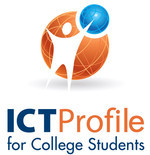From Challenge to Necessity – Student Mastery of Information Technology Skills
A few days ago, I was struck by the message of an editorial written by Francis Cardinal, a journalist specializing in environmental matters, published in La Presse under the title Nos élèves, illettrés numériques (Our students, digital illiterates). Mr. Cardinal’s article included the following thoughts: “We brought the computer into the classroom, we replaced the blackboard with interactive whiteboards connected to the internet, and we’ve multiplied portals, tutorials and computer labs. Yet even today, most students in Quebec do not know how to properly navigate this ocean of information.”
Mr. Cardinal’s point is hard to dispute largely because when I give workshops on electronic plagiarism, teachers are unanimous in saying that our students have problems identifying relevant sources and citing them to respect copyright, that the document presentation is of poor quality, etc… In an excellent story in Profweb entitled La maîtrise du processus de recherche en sciences humaines (Mastering the process of research in the humanities), Nicole Fleurant, a lecturer in sociology at Collège Édouard-Montpetit agreed. The young people we teach are using the computer regularly, but they themselves are saying they are not comfortable with its use in an academic setting.
The college system now has the resources to enable our students to master IT skills that have become a necessity for both the labour market and for the pursuit of academic studies:
- An ICT Profile for college students which describes in clear and precise language the skills to develop and the course the student must follow to master these skills.
- A step by step guide to accompany teachers in their process of integrating IT skills into their curriculum which includes analyzing the current situation within a program and integrating skills designated as required into assessment.
- Grids to be used to identify courses where skills could be developed.
- InukTIC, a website that contains resources vetted by thousands of teachers and librarians as helping to develop these skills.
- An academic advisor who has the resources to facilitate this integration.
- Credit and not-for-credit development activities offered by APOP and Performa among other organizations. Some of these activities can be taken online from the comfort of your office or your living room.
As pointed out by Nicole Fleurant, once the process is undertaken, the benefits are obvious: work improves, both in terms of methodology and content. This list is inspiring!
As I write these lines, 28 colleges have already begun work on integrating an ICT student profile into thirty programs of study including Humanities, Natural Science, Arts and Letters, Technical Accounting and Management, Fashion Design, and Early Childhood Education among others. For more information, contact your IT Representative.


